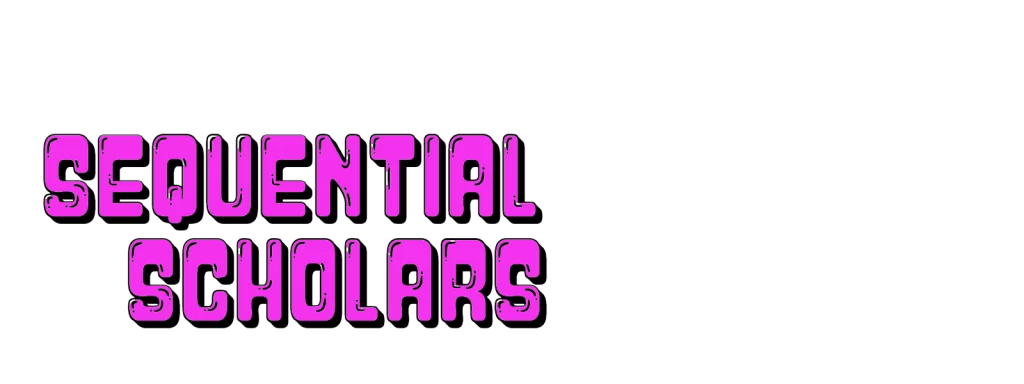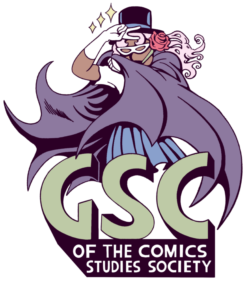
Sequential Scholars is by scholars, for everyone. Contributors are educators, researchers, writers, and fans, of diverse comics, diverse genres of comics, and the special ways comics communicate with other scholars and readers.
Broadly speaking: we’re here to study comics, and to make the study of comics—referred to within academia as the field of “Comics Studies”—as accessible as possible to as many people as possible. The project’s founders, Dr. J. Andrew Deman and Dr. Anna Peppard, are both experienced comics scholars and passionate public scholars. “Public scholarship” is essentially what it sounds like—it’s making scholarship public. That can mean publicly sharing the findings of qualitative analysis and quantitative research. It can also mean publicly sharing scholarly tools and resources. By modeling scholarly discourse, we aim to encourage knowledge sharing among comics readers both inside and outside academia. Anyone eager to think through how comics work is welcome.
More specifically: we write Twitter threads about comics. Each thread combines comics imagery with clear, concise description to foster dialogue about some aspect of comics. Sometimes, we perform close readings of individual stories or sequences. Sometimes, we discuss formal principles, like colouring, linework, or layouts. Sometimes, we talk about historical and cultural contexts of production and reception, about what certain themes, images, and ways of representing reality tell us about culture, society, and the human condition, in all its variety.
But… why comics? Because we love ‘em. But also because we think the accessibility of comics—which communicate through simplified, iconic, identifiable images—and the multimodality of comics—which incorporate both words and pictures—make them ideal for doing public scholarship. As a deceptively complex medium, comics are perfect for demystifying scholarship, which is sometimes deceptively simple. But comics are never simplistic, and neither is quality scholarship. We explore the nuances of both—with lots of help from new and old friends.
To get involved, follow us on Twitter @SeqScholars.
